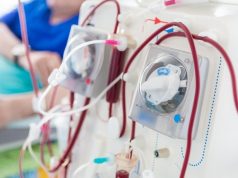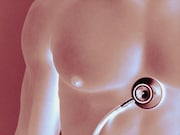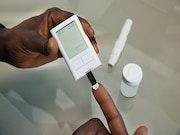Cardiology
Home Cardiology
January 2019 Briefing – Cardiology
Here are what the editors at HealthDay consider to be the most important developments in Cardiology for January 2019. This roundup includes the latest...
Meta-Analysis: Small Weight Increase Seen for Breakfast Eaters
Total daily energy intake higher for participants who eat breakfast, but results inconsistent
E-Cigarettes More Effective for Smoking Cessation
One-year abstinence higher with e-cigarettes than other nicotine replacement products
Long-Term Incidence of A-Fib Increased in Women With Breast Cancer
Women younger than 60 years have increased short-term, longer-term risk
Rising Temps May Up Burden of Congenital Heart Disease in U.S.
Large increases in specific congenital heart defect subtypes projected in different regions
Fruit, Vegetable Intake Very Low in Hemodialysis Population
Higher consumption of fruit and vegetables linked to lower risk for all-cause, non-CVD mortality
AHA: Nearly Half of U.S. Adults Have Cardiovascular Disease
Forty-six percent of U.S. adults have hypertension
Avoiding Full-Blown Diabetes Cuts Cardiovascular Risk
Early detection of prediabetes may reduce risk for developing cardiovascular disease
ASA: Increased Odds of Stroke, MI With E-Cigarette Use
E-cigarettes linked to increased odds of stroke, myocardial infarction, angina or coronary heart disease
ASA: Flu-Like Illness Linked to Increased Risk for Stroke
Second study shows patients more likely to have ILI within 30 days preceding cervical artery dissection



















